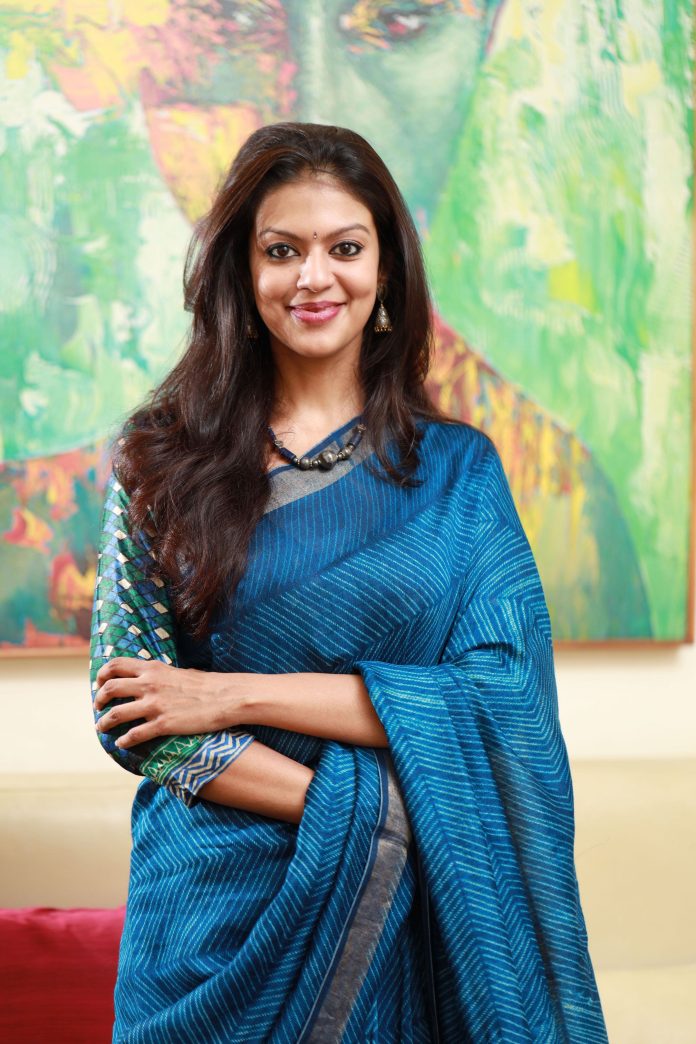Your thoughts about the emergence of women entrepreneurs in India and the future.
We are today seeing more and more women beginning businesses, we have seen a surge in small and medium start ups. The work sector too has seen more women than before. This has been not only due to the fact that more women are getting educated, it is also because women are choosing to be self-reliant. India has always had an entrepreneurial spirit, it shows itself in our cities and villages as shop owners, bakeries, and vendors.
It’s been truer in India that women have joined their spouses and families in their trade, be it as flower sellers, chefs, vegetable vendors etc. The field today is widening and women are stepping out of their family businesses and stepping into their own areas of interest and expertise.
The future will only see more women entrepreneurs and more women in our workforce and this is for the growth and progress of families and countries.
Role of women in building the future of India
There is a popular analogy that says to see the culture, progress and prosperity of a country, look at the way their women and children are treated. The past of India was built by the support of women at home, today more and more women are taking on work to support their families.
India is seeing it’s women stepping out of the shadows and stepping into classrooms, businesses and boardrooms. There are opportunities for women today that weren’t there a decade ago. The future of Indian women is bright and filled with opportunity and possibilities. Women in India today and in the future will hold equal involvement in the building of our country.
Tell our readers about The Vivekalaya Group of Institutions? Kindly take us through your journey since inception.
Vivekalaya was founded in 1989 by Mrs Prema Rao who was unable to find a supportive school for her son after trying the best schools in the city. She believed that the outlook towards teaching and child rearing needed to change and be wholly child centric.
Vivekalaya was the first inclusive school in Coimbatore and the first holistic and child centred school in the city. It has been ‘The Vivekalaya Group of Institutions’ founding principle to provide holistic education and prepare our children for the new dawn of opportunities.
Our resounding ideology has been to give our youth an education that prompts them to be an individual who is liberated, confident and importantly well-grounded. We also ensure new world ideas and instil respect in our children for our rich cultural heritage. Supported by a wonderful group of teaching professionals, at The Vivekalaya Group, we school for a good heart above all else. A child-centric learning approach has been our principle belief, which has been the origin for the many streams and the composite curriculum that we follow.
We were the first school to cull corporal punishment and focus on activity based learning and continue to be a leader in the field in our student based policies.
Tell us about the current Education sector in India and is online education taking over the offline education system in India
Education in India is progressing in leaps and bounds with investment and expansion in the sector. India is today moving towards concentrating on school experience and educational support. The private sector especially are no longer primarily seeking to educate one out of poverty but educate for independence, professional integrity and job security.
The learning through the pandemic has been that the quality of education, or it’s reach is no longer defined by boundaries. It has taught the world that education can persevere during the most difficult times. It has also highlighted the importance and adoption of digitalization to secure continuity in education.
While the discovery and adoption of online education was prevalent and a necessity during the pandemic, I don’t believe it can ever replace the need and importance of traditional schooling in India. Physical and in campus schooling teaches children social behaviour, emotional intelligence and inter personal skills that an online environment cannot. While online education is an additional benefit and necessary option, it cannot replace in campus schooling.
Tell us about how the education system has changed over the years and what are the key takeaway.
Education has certainly changed in India. We have in the last ten years altered school education to becoming more activity based and vocational and less text based. India had an advanced and holistic approach to education through gurukuls and patiashalas before the world discovered formal schooling.
India has always placed value and importance on education it was during imperial India that a system of education was created to mistake literacy with education. The British knew the innate intelligence of the Indian population and placed a system that would deter that very intelligence. It is only now after 6 decades of independence that we are reviewing the system and equipping it to suit the modern Indian.
With the new education policy India is set to educate Indians to be confident equals with the world.
The highlights of an Indian school system are
- Importance given to second and third languages
- The expanse and depth of subject in math and science.
- Attention to memory and retention based learning etc.
Help us with your view about why India is projected as the education hub of the world
India is certainly ahead of a lot of the world with regard to education. It is widely known that the Indian educational system equips the student to be independent, self-sufficient and prepared for higher education platforms. University and college education in India is considered one of the most accessible in the world. India also produces the one of highest number of doctors and engineers yearly, needless to say that the average quality of professional colleges in India surpass their counterparts around the world. Education in India is also inexpensive and extensive is subject knowledge.
This interview was authored by Vishwasjeet Singh, Editor-in-Chief, Estrade Business News. To share more stories kindly email: vishwasjeet@estrade.in






